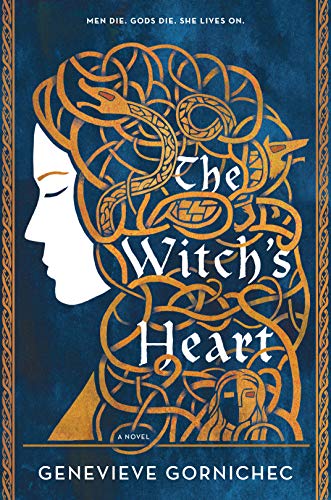The Poppy War by R. F. Kuang
This epic historical military fantasy, inspired by the brutal history of China’s twentieth century and replete with treachery and magic, is in the vein of Ken Liu’s Grace of Kings and N.K. Jemisin’s Inheritance Trilogy marks the thrilling debut of a tremendously innovative genius.
It was a surprise to everyone when Rin aced the Keju—the Empire-wide test to identify the brightest young people to study at the Academies. The test administrators couldn’t believe a war orphan from Rooster Province could pass without cheating; Rin’s guardians thought they’d finally be able to marry her off and further their criminal enterprise, and Rin herself realized she was finally free from the servitude and despair that had been her daily existence.
The Poppy War by R. F. Kuang
36 used from $8.48
Free shipping
However, surprises aren’t always favourable.
Because it’s not always easy to be a dark-skinned peasant girl from the South in Sinegard. As a result of being targeted from the start by competitor students due to her race, poverty, and gender, Rin learns she has a deadly, supernatural talent—a talent for the almost mythological practice of shamanism. With the aid of a teacher who appears to be insane and psychoactive drugs, Rin learns how powerful her talent is and how gods that were once believed to be extinct are still very much alive. She also discovers that mastering her abilities could mean more than just getting through school.
Because the Federation of Mugen is still present across a small sea, even though the Nikara Empire is at peace. After the First Poppy War, the technologically sophisticated Federation controlled Nikan for several years, and it only narrowly lost the continent in the Second. A Third Poppy War is only a spark away, but most people are content to go about their lives without thinking twice.
The only chance for saving Rin’s people may lie in her shamanic abilities. She worries that winning the conflict will cost her humanity and that it may already be too late as she learns more about the furious Phoenix, the god who has chosen her.
Despite having a strong historical foundation, it has a legendary quality that comes from its interpretation of magic, in which some people have the shamanic ability to channel the gods, as well as from the sense that you are watching the creation of a figure who would go on to become a legend. The main character, Fang Runin, also known as Rin, is an impoverished war orphan (or thinks she does). She studies until she is eligible for Sinegard, the most prestigious military academy in Nikan, an empire that is living on the brink of war while the Mugen Federation waits just across the water, ready to invade after her adopted family threatens to marry her off to boost their drug trafficking.
One of the many reasons I love this novel is that Kuang is honest about the brutality and expense of war. Despite the fact that the book is a fantasy, she pulls directly from historical accounts to tackle the Nanjing Massacre and Unit 731, among other atrocities that ought to be better recognized. I particularly value Rin’s aggressive pursuit of power, which she fosters throughout the book. It still feels revolutionary to me, even in a time when fantasy has significantly more place for women, that a chaotic, powerful god is acting through a young woman since female characters are frequently evaluated more harshly for traits like ambition and fury.


 Amazon.com
Amazon.com 




